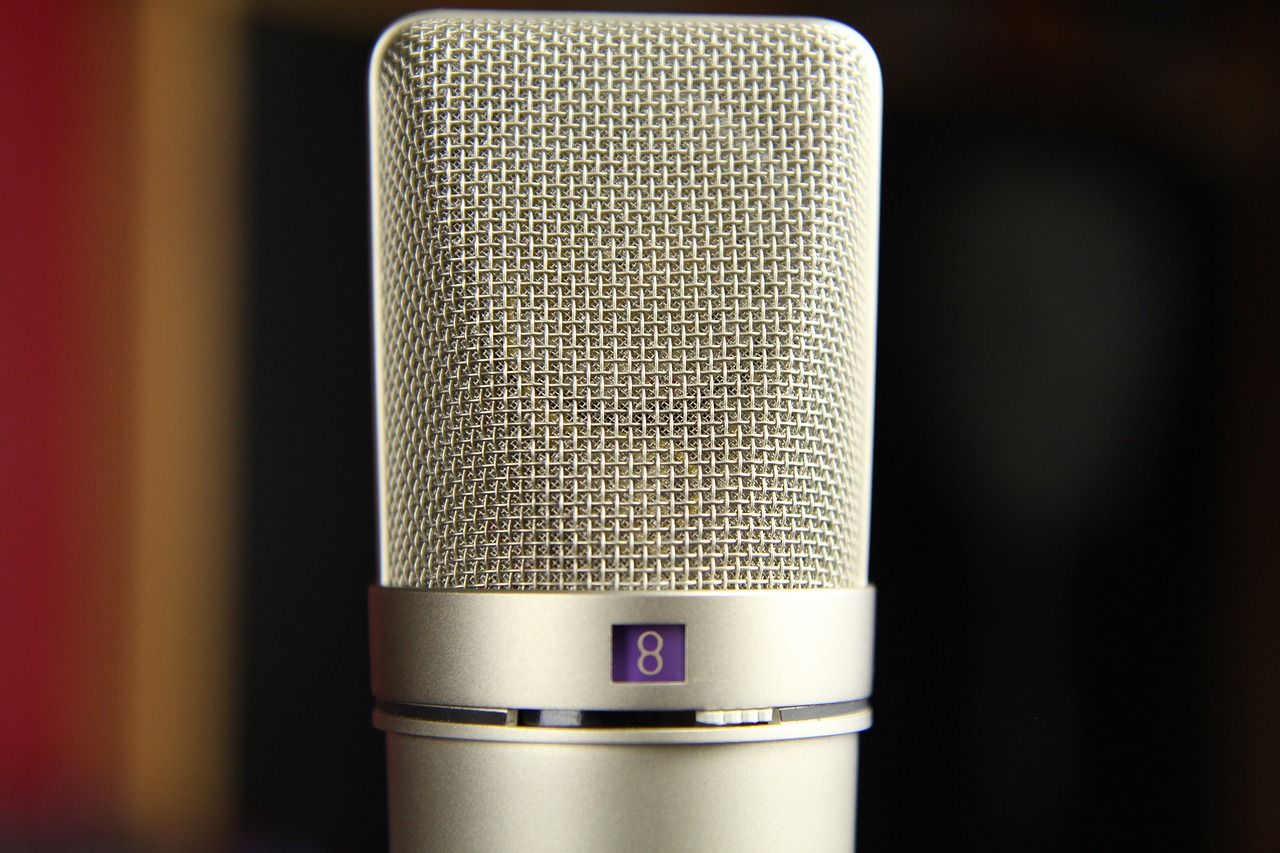The Philosophy Behind Restricting Free Speech
In an age where information flows freely and ideas are exchanged at lightning speed, the question of free speech has become a hotbed of debate. What does it really mean to have the freedom to express oneself, and at what point does that freedom collide with the rights and safety of others? This intricate dance between individual liberty and societal well-being is not just a matter of legal jargon; it’s a philosophical conundrum that has puzzled thinkers for centuries. The philosophy behind restricting free speech is rooted in complex moral, ethical, and societal implications. It raises fundamental questions: Should there be limits to what we can say? If so, who decides what those limits are? And how do we ensure that the balance between freedom and safety is maintained without tipping too far in either direction?
At the heart of this debate lies the ethical dilemma of free speech. While many advocate for absolute freedom, arguing that it is a cornerstone of democracy and personal autonomy, others caution against the potential harm that certain expressions can inflict. Imagine a world where hate speech, misinformation, or incitement to violence run rampant—would we still cherish our freedom of expression, or would we yearn for some form of regulation? This tension between individual rights and the collective good is where the philosophical arguments become particularly rich and nuanced.
To explore this further, we can look at various philosophical perspectives that provide frameworks for understanding when speech should be restricted. For instance, the harm principle, famously articulated by philosopher John Stuart Mill, suggests that the only justification for limiting free speech is to prevent harm to others. In contrast, some argue that offensive speech, even if it doesn’t cause direct harm, can create a hostile environment that undermines the dignity of individuals or groups. This brings us to a critical juncture in our understanding of free speech: the idea that what may be harmless to one person could be deeply damaging to another.
In this philosophical landscape, it's essential to consider the implications of restricting free speech. While some argue that restrictions can protect vulnerable populations, others contend that they can also lead to a slippery slope of censorship and oppression. The challenge lies in creating a framework that respects individual rights while also acknowledging the responsibilities we have toward one another as members of a community. Ultimately, the philosophy behind restricting free speech is not just about laws and regulations; it's about our values, our priorities, and the kind of society we wish to build.
This section delves into the moral implications of free speech restrictions, discussing the balance between individual liberty and the potential harm caused by certain speech acts in society.
Understanding the historical evolution of free speech restrictions provides insight into contemporary debates, tracing how societies have grappled with the tension between freedom and regulation throughout different eras.
Analyzing specific examples of censorship reveals the motivations behind restricting speech, highlighting instances from various countries that illustrate the consequences and justifications for such actions.
Political censorship often arises during conflicts or crises, where governments may limit speech to maintain control, raising questions about the legitimacy and ethical implications of such actions.
The rise of social media has prompted discussions on regulating speech online, examining how platforms navigate the fine line between free expression and harmful content.
Various philosophical theories provide frameworks for understanding when speech should be restricted, focusing on concepts of harm, offense, and the greater good in society.
This section discusses the need to balance individual rights with societal responsibilities, exploring how restrictions on speech can sometimes be justified to protect vulnerable populations.
Examining legal approaches to speech regulation reveals how different jurisdictions define and enforce limitations, offering insights into the complexities of law and morality in this area.
As society evolves, so do the discussions around free speech, with emerging technologies and cultural shifts influencing how we perceive and regulate expression in the future.
- What is the harm principle? The harm principle, proposed by John Stuart Mill, suggests that speech should only be limited to prevent harm to others.
- Are there any laws that restrict free speech? Yes, laws vary by country, but many places have restrictions against hate speech, incitement to violence, and defamation.
- How does social media impact free speech? Social media platforms often face challenges in balancing free expression with the need to prevent harmful content, leading to ongoing debates about regulation.
- Can free speech be absolute? Most philosophers agree that while free speech is vital, it cannot be absolute if it leads to harm or violates the rights of others.

The Ethical Dilemma of Free Speech
When we think about free speech, we often envision a world where everyone can express their opinions without fear of repercussions. However, this idealistic view clashes with the reality of the potential harm that certain types of speech can inflict on individuals and society as a whole. The ethical dilemma surrounding free speech lies in the balance between individual liberty and the potential consequences of that liberty. Can we truly call it freedom if it comes at the cost of someone else's safety or dignity?
Consider this: what if a speech act incites violence or spreads misinformation? In these cases, the argument for restricting such speech becomes compelling. The challenge, however, is determining where to draw the line. This is not merely a legal question; it’s a moral one. The philosophical underpinnings of free speech suggest that while we should protect the right to express dissenting opinions, we must also recognize that not all speech is created equal.
One might argue that allowing harmful speech is akin to allowing a fire to burn unchecked. Just as a fire can spread and cause destruction, so too can certain words lead to real-world harm. For instance, hate speech can perpetuate discrimination and violence against marginalized groups. Thus, the ethical dilemma becomes a question of responsibility: do we prioritize the freedom to speak over the potential for harm that speech can cause?
In navigating this dilemma, some ethical frameworks emerge. Utilitarianism, for example, advocates for the greatest good for the greatest number. From this perspective, restricting speech that leads to harm could be justified if it protects the well-being of individuals and communities. Conversely, a deontological approach might argue that the right to free speech is an inherent human right that should never be compromised, regardless of the consequences.
Ultimately, the ethical dilemma of free speech reflects a broader societal struggle to balance rights with responsibilities. As we grapple with these complex issues, it’s crucial to engage in open dialogue and consider diverse perspectives. Only through understanding the nuances of this debate can we hope to find a path that respects both individual liberties and the need for a safe, inclusive society.
- What is the main ethical dilemma of free speech?
The main ethical dilemma revolves around balancing individual rights to express themselves and the potential harm that such expressions may cause to others. - Why is it important to restrict certain types of speech?
Restrictions may be necessary to prevent harm, discrimination, or violence that can arise from hate speech or misinformation. - How do different ethical frameworks view free speech?
Utilitarianism focuses on the greatest good, suggesting that harmful speech can be limited, while deontological ethics prioritize the inherent right to free speech regardless of consequences.

Historical Context of Free Speech Limitations
The journey of free speech is as intricate as the tapestry of human history itself. From the ancient civilizations where orators captivated crowds with their eloquence to the modern digital age where tweets can spark global movements, the evolution of free speech has been marked by both **progress** and **regression**. Understanding the historical context of free speech limitations is essential to grasp how societies have navigated the often turbulent waters between **liberty** and **control**.
In ancient Greece, the birthplace of democracy, free speech was celebrated as a cornerstone of civic life. However, even then, limitations existed. For instance, **Socrates**, the great philosopher, faced execution for his ideas that challenged the status quo. This early example illustrates that the tension between free expression and societal norms is not a modern phenomenon; it has deep roots in our past.
Fast forward to the **Middle Ages**, where the Church wielded significant power over speech. Dissenting voices were silenced, and heretics faced dire consequences. The **Inquisition** is a stark reminder of how religious authority imposed restrictions on expression, often labeling it as blasphemy. This period underscores the idea that speech limitations can be driven by the desire to maintain control over societal beliefs and values.
As we entered the **Age of Enlightenment**, thinkers like **Voltaire** and **John Locke** championed the notion of free speech as a fundamental human right. Their works laid the groundwork for modern democratic principles. However, even during this era of enlightenment, governments often clashed with these ideals. The **Alien and Sedition Acts** in the United States during the late 18th century exemplified how political powers can impose restrictions on speech, fearing dissent and the potential for social upheaval.
In the 20th century, the world witnessed significant conflicts that shaped the landscape of free speech. Totalitarian regimes, such as those led by **Stalin** in the Soviet Union and **Hitler** in Nazi Germany, implemented draconian measures to suppress dissenting voices. Propaganda became a tool for manipulation, and censorship was rampant. These historical instances serve as a cautionary tale about the dangers of unchecked power and the fragility of free speech in the face of authoritarianism.
Today, the conversation around free speech continues to evolve, particularly in light of emerging technologies and social media. The internet has democratized information sharing, allowing diverse voices to be heard. However, it has also led to new challenges, such as the spread of misinformation and hate speech. The historical context reminds us that while the fight for free speech is ongoing, it is essential to consider the implications of our words and the responsibilities that come with them.
To further illustrate the historical evolution of free speech limitations, consider the following table:
| Era | Key Events | Implications for Free Speech |
|---|---|---|
| Ancient Greece | Execution of Socrates | Early conflict between individual thought and societal norms |
| Middle Ages | Inquisition | Religious authority suppressing dissent |
| Age of Enlightenment | Publication of works by Voltaire and Locke | Foundation for modern concepts of free speech |
| 20th Century | Rise of totalitarian regimes | Extreme censorship and propaganda |
| Modern Era | Social media and the internet | New challenges and opportunities for free expression |
In conclusion, the historical context of free speech limitations is a complex narrative filled with lessons about the delicate balance between freedom and regulation. As we navigate contemporary debates, it is crucial to remember that the fight for free speech is not just about the right to express oneself; it's about understanding the responsibilities that come with it and the historical lessons that guide our path forward.
- What is the significance of free speech in a democratic society? Free speech is essential for fostering open dialogue, enabling citizens to express their opinions, and holding those in power accountable.
- Are there any limits to free speech? Yes, limitations can exist to prevent harm, such as hate speech, incitement to violence, or defamation.
- How has technology impacted free speech? Technology has expanded the platforms for expression but also introduced challenges like misinformation and online harassment.

Case Studies in Censorship
When we dive into the realm of censorship, it’s essential to look at real-world examples that illustrate the motivations and consequences behind restricting speech. Throughout history, different countries have grappled with the fine line between maintaining order and suppressing individual expression. Let's explore a few notable case studies that shed light on this complex issue.
One prominent example is the Great Chinese Firewall, a sophisticated system employed by the Chinese government to control the flow of information. This censorship mechanism restricts access to foreign websites and regulates domestic platforms, ensuring that the government can maintain a tight grip on public discourse. The implications of this are staggering; citizens are often left in the dark regarding global events, leading to a society that is significantly less informed. The government justifies these actions by claiming they protect national security and social stability, but at what cost to individual freedoms?
Another case worth examining is the Netherlands' approach to hate speech. In 2014, the Dutch government faced a dilemma when *Geert Wilders*, a controversial politician, made inflammatory remarks about Islam. The government’s response was to investigate whether his speech constituted hate speech under Dutch law. This situation highlights the tension between protecting free expression and safeguarding vulnerable communities from harm. While some argue that limiting Wilders' speech is necessary to protect societal harmony, others contend that it sets a dangerous precedent for silencing dissenting voices.
In the United States, the First Amendment typically protects free speech, but there are exceptions, especially when it comes to incitement to violence or obscenity. A notable case was the Skokie case in the late 1970s, where a group of Neo-Nazis sought to march in a predominantly Jewish community. The Supreme Court ruled in favor of the Nazis, emphasizing that even hate speech must be protected to ensure freedom for all. This case sparked widespread debate about the limits of free speech and the responsibilities of society to protect its members from harmful ideologies.
In addition to these historical examples, we can’t overlook the impact of modern technology on censorship. Social media platforms like Facebook and Twitter have become battlegrounds for free expression. In 2020, after the U.S. presidential election, various platforms began to crack down on misinformation, leading to the suspension of numerous accounts. While these actions were aimed at curbing false information, they raised significant concerns about the potential overreach of tech companies in moderating speech. The balance between combating harmful content and preserving free expression is a delicate dance that continues to evolve.
To summarize, these case studies highlight the multifaceted nature of censorship across different contexts. Whether it's a government imposing strict regulations, a society grappling with hate speech, or tech companies navigating the challenges of misinformation, the implications of restricting speech are profound. As we continue to examine these issues, it’s crucial to ask ourselves: how do we find the right balance between protecting society and upholding individual freedoms?
- What is censorship? Censorship is the suppression or prohibition of speech, public communication, or other information that may be considered objectionable, harmful, or sensitive by authorities.
- Why do governments censor speech? Governments may censor speech to maintain social order, protect national security, or prevent the spread of harmful ideologies.
- How does censorship affect society? Censorship can create an uninformed populace, stifle dissent, and limit the exchange of ideas, ultimately hindering societal progress.
- What are the implications of social media censorship? Social media censorship raises questions about who decides what is harmful content and how that affects free expression online.

Political Censorship
Political censorship is a phenomenon that often rears its head during times of crisis or conflict, where governments may feel compelled to limit speech in the name of maintaining order and control. Imagine a ship caught in a storm; the captain must make tough decisions to steer the vessel safely to shore, sometimes at the expense of the crew's freedom to express their concerns. This analogy encapsulates the ethical dilemma faced by authorities when balancing the need for stability against the fundamental right to free expression.
Throughout history, we have witnessed numerous instances where political censorship has been justified under the guise of national security or public safety. For example, during wartime, governments may impose restrictions on the press to prevent the dissemination of information that could be advantageous to the enemy. This raises the question: at what point does the restriction of speech become a tool for oppression rather than protection? It's a slippery slope that can lead to the erosion of democratic values and civil liberties.
Moreover, the rise of authoritarian regimes has shed light on the darker sides of political censorship. In these contexts, the suppression of dissenting voices is often framed as necessary for the greater good. Citizens may be led to believe that limiting free speech is essential for national unity and stability. However, this creates a paradox; while the government claims to protect its citizens, it simultaneously undermines their rights, leading to a society where fear stifles creativity and critical thought.
To illustrate the impact of political censorship, consider the following examples:
| Country | Type of Censorship | Justification |
|---|---|---|
| China | Internet censorship | Maintaining social harmony |
| North Korea | Media suppression | State propaganda |
| Turkey | Press restrictions | National security |
This table highlights how different countries utilize political censorship under various justifications, often leading to a chilling effect on free speech. Citizens in these nations may find themselves navigating a treacherous landscape where expressing dissent could result in severe consequences, such as imprisonment or worse.
In conclusion, political censorship is a complex issue that raises fundamental questions about the nature of freedom and the role of government in regulating speech. While there may be circumstances that warrant restrictions, the potential for abuse and the long-term implications for democracy cannot be overlooked. As we continue to grapple with these challenges, it is essential to foster open dialogue and encourage critical thinking to ensure that the delicate balance between security and freedom is maintained.
- What is political censorship?
Political censorship refers to the suppression of speech or public communication that may be deemed harmful or threatening to the government or its policies. - Why do governments impose censorship?
Governments may impose censorship to maintain control, protect national security, or suppress dissent, especially during times of crisis. - How does political censorship affect society?
Political censorship can lead to a lack of trust in government, stifle creativity, and hinder the open exchange of ideas, ultimately undermining democratic values.

Social Media Regulations
In today's digital age, social media platforms have become the modern town squares where voices from all walks of life converge. However, with great power comes great responsibility, and this is where the debate over kicks into high gear. The challenge lies in navigating the delicate balance between allowing free expression and preventing harm. Imagine a bustling marketplace where every vendor is shouting their wares; while the noise is vibrant, it can also lead to chaos if not managed properly.
Social media companies are faced with the daunting task of moderating content to ensure that their platforms remain safe and welcoming for all users. This responsibility is not just about enforcing community guidelines but also about adhering to legal obligations that vary from one jurisdiction to another. For example, in the European Union, regulations like the Digital Services Act aim to hold platforms accountable for the content they host, requiring them to act against illegal content swiftly. On the other hand, in the United States, the First Amendment offers robust protections for free speech, complicating the landscape for social media regulation.
One of the primary concerns surrounding social media regulation is the issue of hate speech. While many agree that hate speech should not be tolerated, defining what constitutes hate speech can be subjective and contentious. This leads to a slippery slope where the potential for censorship looms large. For instance, a post that criticizes a political figure might be flagged as harmful by some, while others see it as a legitimate expression of dissent. The inconsistency in moderation practices can lead to accusations of bias, further fueling public distrust in these platforms.
Moreover, the rise of misinformation and disinformation campaigns has prompted social media companies to implement stricter regulations. During critical events like elections or public health crises, the spread of false information can have dire consequences. As a result, platforms have introduced measures such as fact-checking and content warnings to curb the spread of misleading content. However, these actions often spark debates about the fine line between protecting the public and infringing on free speech. Just like a referee in a sports game, social media platforms must make quick decisions that can affect the outcome, but their calls are often scrutinized.
To illustrate the complexity of social media regulations, consider the following table that outlines some key aspects:
| Aspect | Regulatory Approach | Challenges |
|---|---|---|
| Hate Speech | Strict moderation policies | Subjectivity in definitions |
| Misinformation | Fact-checking and warnings | Balancing free speech |
| User Privacy | Data protection regulations | Compliance and enforcement |
As we look to the future, the conversation around social media regulations will undoubtedly continue to evolve. With emerging technologies like artificial intelligence playing a role in content moderation, the ethical implications of these advancements will need to be addressed. Will AI be able to strike the right balance, or will it inadvertently contribute to the very problems it seeks to solve? The answers remain uncertain, but one thing is clear: the dialogue surrounding social media regulations is far from over.
- What are social media regulations? Social media regulations refer to the rules and guidelines that govern the content shared on social media platforms to ensure safety and compliance with laws.
- Why are social media regulations necessary? They are necessary to prevent the spread of harmful content, misinformation, and to protect users' rights and safety.
- How do different countries approach social media regulations? Different countries have varying laws and regulations, influenced by cultural, political, and legal frameworks, leading to a patchwork of rules globally.
- What role do social media companies play in regulating content? Social media companies are responsible for monitoring and enforcing their community guidelines, which often involves moderating user-generated content.

Philosophical Perspectives on Harm
The discussion surrounding the limitations of free speech often hinges on the concept of harm. Philosophers have long debated what constitutes harm and how it relates to the freedom of expression. At its core, the argument revolves around the question: when does an individual's right to speak freely infringe upon another's right to safety and dignity? This dilemma invites us to explore various philosophical frameworks that attempt to delineate the boundaries of acceptable speech.
One prominent perspective comes from the harm principle, famously articulated by John Stuart Mill. Mill argued that the only justification for limiting speech is to prevent harm to others. In this view, if a speech act does not lead to tangible harm, it should be protected, no matter how offensive or disagreeable it may be. This idea raises an important question: how do we define "harm"? Is it merely physical injury, or can emotional and psychological distress also be considered? For instance, hate speech can lead to societal division and mental anguish, prompting some to argue for its restriction under the harm principle.
Another philosophical angle is the concept of offense. Some theorists argue that while speech may not cause direct harm, it can still be deeply offensive to certain groups, thus warranting restrictions. This perspective suggests that the emotional and psychological impacts of speech can be significant enough to justify limitations, especially when it concerns marginalized communities. However, this raises a critical counterpoint: if we begin to restrict speech based on offense, where do we draw the line? The challenge lies in balancing the right to express unpopular opinions with the need to protect individuals from distressing or harmful rhetoric.
Moreover, the greater good principle introduces another layer to this debate. This perspective posits that limiting certain forms of speech may be justified if it serves the overall benefit of society. For example, during times of crisis, such as a public health emergency, misinformation can lead to widespread panic and harm. In such cases, governments may impose restrictions on speech to safeguard public welfare. Yet, the ethical implications of such actions are complex. How do we ensure that the measures taken do not infringe on fundamental rights? And who gets to decide what constitutes the "greater good"?
To better understand these philosophical perspectives, we can summarize them in the following table:
| Philosophical Perspective | Key Focus | Potential Issues |
|---|---|---|
| Harm Principle | Limits speech to prevent harm to others | Defining what constitutes harm |
| Offense Principle | Restricts speech that is offensive to certain groups | Determining the threshold of offense |
| Greater Good Principle | Justifies restrictions for societal benefit | Who defines the "greater good"? |
Ultimately, the philosophical perspectives on harm illustrate the intricate balance between individual rights and the responsibilities we hold towards one another as members of a community. As we navigate these complex waters, it becomes clear that the conversations surrounding free speech are not merely academic; they are deeply rooted in our shared values and the kind of society we aspire to create. This ongoing dialogue is essential as we strive to find a middle ground where freedom of expression can coexist with the protection of vulnerable populations.
- What is the harm principle? The harm principle, proposed by John Stuart Mill, suggests that speech should only be limited to prevent harm to others.
- Can offensive speech be restricted? Some argue that speech causing offense can be restricted, but this raises questions about where to draw the line.
- What is the greater good principle? This principle posits that speech can be limited if it serves the overall benefit of society, though defining the "greater good" can be contentious.

Balancing Rights and Responsibilities
When we talk about free speech, it’s crucial to recognize that it doesn’t exist in a vacuum. The conversation about free speech often leads us to the complex interplay between individual rights and societal responsibilities. Imagine a tightrope walker balancing precariously above a crowd; on one side, you have the right to express your thoughts freely, and on the other, the responsibility to ensure that your words do not harm others. This balance is not just a philosophical ideal but a practical necessity in a diverse society.
At its core, the discussion about balancing rights and responsibilities boils down to a few key considerations. First, we need to understand that while free speech is a fundamental right, it isn’t an absolute one. Certain forms of speech can lead to real-world consequences that can affect the safety and well-being of individuals and communities. For instance, hate speech, which incites violence or discrimination against marginalized groups, poses a significant threat. Here, the responsibility to protect vulnerable populations must weigh heavily in the conversation about speech restrictions.
Furthermore, the idea of social responsibility plays a pivotal role in this debate. In a world where misinformation can spread like wildfire, especially through social media, individuals and platforms alike have a duty to consider the impact of the information they share. The question arises: should individuals be held accountable for the consequences of their speech, particularly when it leads to harm? This is where the concept of “responsible speech” comes into play, suggesting that with the right to speak freely comes the obligation to do so thoughtfully.
Another important aspect to consider is the role of laws and regulations that aim to maintain this balance. Different countries approach this issue in various ways, often reflecting their unique cultural values and historical experiences. For example, in some jurisdictions, laws against hate speech are strictly enforced, while others prioritize the right to free expression even in the face of potentially harmful speech. This disparity highlights the ongoing struggle to find a universally acceptable balance between protecting individual rights and ensuring community safety.
To illustrate these complexities, let’s take a look at a hypothetical scenario. Imagine a public figure who makes inflammatory remarks that incite violence against a particular group. While they might argue that their comments are a form of free expression, the resulting harm and societal discord challenge the notion of unbridled free speech. In this case, the community's responsibility to protect its members could necessitate restrictions on that speech. This scenario exemplifies the ongoing tug-of-war between the right to speak freely and the responsibility to foster a safe environment for all.
In conclusion, balancing rights and responsibilities in the realm of free speech is not just a legal issue; it’s a moral and ethical one as well. As society evolves, so too must our understanding of how to navigate these waters. We must strive to create a culture where free expression is celebrated but also exercised with a keen awareness of its potential impact on others. Only then can we hope to achieve a harmonious coexistence between individual liberties and the collective good.
- What is the primary concern regarding free speech?
The main concern is finding a balance between individual rights and the potential harm that speech can cause to others. - Are there any absolute rights when it comes to free speech?
No, free speech is not absolute, and certain limitations exist, particularly regarding hate speech and incitement to violence. - How do cultural differences affect free speech regulations?
Different cultures have varied historical experiences and values, leading to different approaches to regulating speech. - What role do social media platforms play in regulating speech?
Social media platforms often face the challenge of balancing free expression with the need to prevent harmful content.

Legal Frameworks for Speech Regulation
The legal frameworks that govern speech regulation are as diverse as the societies they serve. In many countries, laws are designed to balance the right to free expression with the need to protect individuals and communities from harm. This delicate balance often leads to complex legal battles and ongoing debates about the extent and limits of free speech. For instance, in the United States, the First Amendment guarantees freedom of speech, yet exceptions exist for speech that incites violence, constitutes hate speech, or falls under the category of obscenity. This creates a fascinating landscape where legal scholars and courts must interpret the nuances of what constitutes acceptable versus unacceptable speech.
In contrast, countries like Germany and France have more stringent laws regarding hate speech and Holocaust denial, reflecting their historical contexts and societal values. The German Basic Law explicitly prohibits speech that incites hatred against segments of the population, showcasing a commitment to protecting democratic values and human dignity. Similarly, France's laws against hate speech aim to foster social harmony and prevent the spread of extremist ideologies. These differences illustrate how cultural, historical, and political factors shape the legal frameworks surrounding speech regulation.
Moreover, the rise of the internet and social media has introduced new challenges for these frameworks. Platforms like Facebook and Twitter often find themselves at the crossroads of free expression and the need to curb harmful content. In response, many countries are developing specific regulations that require social media companies to take responsibility for the content shared on their platforms. For example, the EU's Digital Services Act aims to create a safer digital space by establishing clear rules for online platforms regarding the moderation of illegal content. This evolving legal landscape necessitates ongoing dialogue about how to effectively regulate speech while preserving fundamental rights.
To better understand the various legal frameworks, consider the following table that outlines key differences in speech regulation across several countries:
| Country | Legal Framework | Key Restrictions |
|---|---|---|
| United States | First Amendment | Hate speech, incitement to violence, obscenity |
| Germany | Basic Law | Hate speech, Holocaust denial |
| France | Press Law | Hate speech, defamation, incitement |
| United Kingdom | Public Order Act | Racial hatred, incitement to violence |
As we navigate this complex terrain, it becomes evident that legal frameworks for speech regulation are not static; they evolve in response to societal needs and technological advancements. The challenge lies in ensuring that these frameworks are not only effective in protecting individuals and communities but also respect the fundamental right to free expression. This ongoing tension between regulation and freedom will likely continue to shape the discourse around free speech for years to come.
- What is the primary purpose of speech regulation?
Speech regulation aims to protect individuals and society from harm while balancing the right to free expression. - How do different countries approach free speech?
Approaches vary widely, with some countries enforcing strict hate speech laws while others prioritize absolute free speech. - What role does social media play in speech regulation?
Social media platforms are increasingly held accountable for the content shared by users, leading to new regulations and guidelines. - Can speech ever be completely free?
In practice, no; all societies impose some limitations on speech to protect public safety and individual rights.

Future Trends in Free Speech Debates
The landscape of free speech is constantly evolving, and as we move further into the digital age, the debates surrounding it become increasingly complex. With the rise of social media platforms, the way we communicate has transformed dramatically, leading to new challenges in how we define and protect free expression. This evolution raises critical questions: How do we balance the right to speak freely with the need to protect individuals from harmful content? Are existing laws sufficient to address the challenges posed by online speech?
One of the most significant trends we are witnessing is the emergence of artificial intelligence (AI) and its role in moderating online speech. AI algorithms are being employed to detect and remove hate speech, misinformation, and other harmful content. However, this raises concerns about the potential for overreach and the suppression of legitimate discourse. As we embrace these technologies, we must ask ourselves: Who decides what constitutes harmful speech, and how do we ensure that these decisions are made fairly and transparently?
Moreover, the globalization of communication is another factor influencing free speech debates. As people from diverse cultural backgrounds engage with one another online, differing norms and values regarding speech can clash. For instance, what is considered acceptable in one country may be deemed offensive in another. This cultural divergence complicates the establishment of universal standards for speech, leading to ongoing discussions about the need for a more nuanced understanding of free expression that respects both individual rights and cultural sensitivities.
Additionally, the rise of cancel culture has sparked heated discussions about accountability and the limits of free speech. While some argue that it serves as a necessary tool for social justice, others view it as a form of censorship that stifles open dialogue. This tension highlights the ongoing struggle to find a balance between holding individuals accountable for their words and preserving a space for constructive conversation. As we navigate these waters, it’s essential to foster environments where diverse perspectives can be shared without fear of retribution.
In light of these developments, legal frameworks are also adapting to address the challenges posed by modern communication. Countries are beginning to reevaluate their laws concerning free speech, often in response to public outcry regarding hate speech and misinformation. For instance, some jurisdictions are implementing stricter regulations on social media platforms to ensure that they take responsibility for the content shared on their sites. This raises further questions: How do we define the limits of acceptable speech, and what role should governments play in regulating it?
As we look to the future, it becomes clear that the debates surrounding free speech will continue to evolve alongside technological advancements and cultural shifts. The challenge lies in navigating these changes while upholding the fundamental principles of free expression. Ultimately, fostering a society that values both individual rights and community safety will require ongoing dialogue, critical examination of our values, and a commitment to finding common ground.
- What is the role of social media in free speech debates?
Social media has transformed how we communicate, leading to new challenges in defining and protecting free expression while addressing harmful content. - How does AI impact free speech?
AI is increasingly used to moderate online speech, which raises concerns about fairness and transparency in determining what constitutes harmful content. - What is cancel culture?
Cancel culture refers to the practice of withdrawing support from individuals or entities based on their speech or actions, leading to debates about accountability versus censorship. - How are laws changing regarding free speech?
Many countries are reevaluating their legal frameworks for free speech to address modern challenges, often focusing on hate speech and misinformation.
Frequently Asked Questions
- What is the main argument for restricting free speech?
The main argument for restricting free speech often revolves around the idea of preventing harm. While free speech is a fundamental right, certain expressions can lead to violence, hate, or discrimination against vulnerable groups. Therefore, the challenge lies in finding a balance between protecting individual liberties and ensuring the safety of the community.
- How has historical context influenced free speech limitations?
Throughout history, societies have grappled with the tension between freedom and regulation. Events like wars, revolutions, and social movements have prompted governments to impose restrictions on speech. Understanding this historical context helps illuminate why certain limitations exist today and how they can evolve over time.
- What are some examples of political censorship?
Political censorship often surfaces during conflicts or crises. For instance, during times of war, governments may limit media coverage or dissenting voices to maintain control and morale. These actions raise important questions about the legitimacy and ethics of such restrictions, especially when they infringe on the public's right to know.
- How do social media platforms regulate speech?
Social media platforms face the difficult task of moderating content while respecting free expression. They implement guidelines to combat hate speech, misinformation, and harassment. However, the fine line between regulation and censorship is hotly debated, as users often feel their voices are being stifled.
- What philosophical theories support speech restrictions?
Several philosophical perspectives provide frameworks for understanding when speech should be restricted. For example, the harm principle, proposed by John Stuart Mill, suggests that speech can be limited if it causes direct harm to others. Other theories may focus on the concepts of offense or the greater good, shaping the discourse on acceptable speech.
- How can we balance individual rights and societal responsibilities?
Balancing individual rights with societal responsibilities is crucial in discussions about free speech. While everyone has the right to express themselves, there are instances where restrictions may be justified to protect vulnerable populations from hate or violence. This balance is a dynamic conversation that requires ongoing evaluation as society evolves.
- What legal frameworks exist for regulating speech?
Legal frameworks for regulating speech vary significantly across jurisdictions. Some countries have strict laws against hate speech, while others prioritize free expression even in controversial contexts. Understanding these legal approaches helps clarify the complexities of law and morality surrounding speech regulation.
- What future trends might influence free speech debates?
As technology advances and cultural attitudes shift, the debates surrounding free speech will continue to evolve. Issues like AI-generated content, online harassment, and the role of digital platforms in shaping public discourse will be at the forefront of future discussions, challenging our understanding of free expression.



















